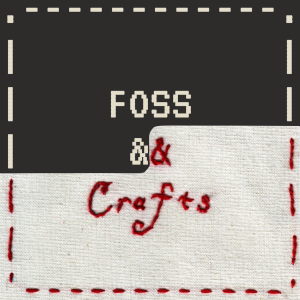There's all sorts of reasons to pursue historical crafting techniques: for the experience of recreating them or learning new techniques, for education, or for entertainment and immersion. Morgan and Chris explore these paths under the terms "experiential historical crafts", "experimental archaeology", and "historical reenactment". What is important, useful, and fun about each of these? What pitfalls might we want to avoid? What can be gained by what we might find, how might we bring more people in... and what do we risk by what (or who) we might miss or leave out?
Links and references:
Afroculinaria, Michael Twitty’s blog
Twitty, Michael. The Cooking Gene : a Journey through African American Culinary History in the Old South. New York, NY :Amistad, an imprint of HarperCollinsPublishers, 2017.
Outram, Alan K. “Introduction to Experimental Archaeology.” World Archaeology, vol. 40, no. 1, 2008, pp. 1–6.
Janet Stephens’s YouTube channel, with tutorials for re-creating historical hairstyles
Stephens, Janet. “Recreating the Fonseca Hairstyle.” EXARC, 2013/1, https://exarc.net/issue-2013-1/at/recreating-fonseca-hairstyle
The journal EXARC is a peer-reviewed online journal for experimental archaeology with articles released under CC BY-NC-SA
Strand, Eva B. A, Marie-Louise Nosch, and Joanne Cutler. Tools, Textiles and Contexts: Investigating Textile Production in the Aegean and Eastern Mediterranean Bronze Age. Oxford: Oxbow Books, 2015.
New Yorker* article about the Townsends episode on “Orange Fool” (* Not the New York Times, as Chris misspoke in the podcast)
Townsends episode in aftermath of the “Orange Fool” outrage (where he specifically states that his channel does not link historical topics to modern politics)
Michael Twitty making Kush on Townsends (“Exactly how you expect stuffing to smell … this is what you expect it to taste like”)
Michael Twitty making Akara on Townsends (the fritter/falafel-like dish)
Special note here: we aren't saying Townsends is bad; we enjoy the show and from a standpoint of production, what it does present is very good. But it does seem like the show makes an intentional dodge on important issues or chooses to only present a limited and fun subset of history... which can be disappointing at the least and at the worst can result in a kind of nostalgia that erases real problems. All history is suffused with things to celebrate and things which are disturbing and disappointing, but recognizing only the former sets us up to repeat the latter.
